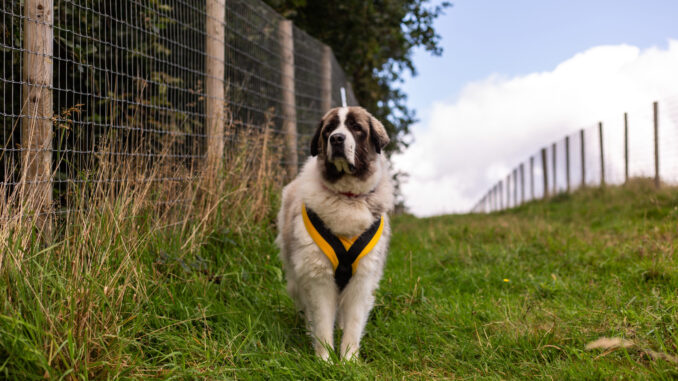
With pet theft reported to be on the increase in the UK, Dogs Trust, the UK’s leading dog welfare charity, has issued guidance to owners in a bid to prevent much loved dogs from being separated from their families.
This Thursday, 14th March, is Dogs Theft Awareness Day, and according to a recent report by Direct Line, 2,290 dogs were stolen across the UK in 2023, a six per cent increase on 2022.
However, despite the very distressing nature of having a dog stolen, pet theft is not a specific crime. Currently, the crime of stealing a dog is treated in the same way as the theft of household items such as phones and bikes, without considering the huge emotional impact losing a pet has on families and individuals.
For many years, Dogs Trust, which has rehoming centres in Cardiff and Bridgend, has called for harsher penalties to deter those who profit from the theft of dogs. Earlier this year, a Private Members Bill, that has cross-party support received its second reading in the Houses of Parliament. If successful, this would see Pet Theft become a specific offence.
To help owners reduce the risk of their dog being stolen, Dogs Trust has issued the following advice:
- Ensure your house and property boundaries are secure – keep your dog in and intruders out.
- Keep an eye on your dog when they are in the garden and never leave them unsupervised.
- Do you post pictures of your dog on social media? If so, regularly review your privacy settings and make sure your address can’t be identified from your posts.
- When exercising your dog, always keep them in sight and pay attention to what they are doing. If exercising your dog off lead, make sure they have good recall and come back to you when you call them, regardless of where they are.
- Never leave your dog unattended in a public place – even if it’s just for a minute.
- Likewise, never leave your dog alone in a car. As well as the risk of being stolen, they can also easily overheat, even if the weather is cold or mild.
- Make sure your dog is searchable in case the worst should happen. Ensure your dog is wearing a tag with your name, phone number and address on it, and make sure your dog is microchipped. Let your database provider know if any of your contact details change, and keep up-to-date, clear photos of your dog, making sure to show any distinctive features.
If the worst does happen and your dog is stolen, you can feel helpless and have no idea where to start looking for them. Dogs Trust suggests the following:
- Report the theft to the police straight away. Make sure you get a crime reference number and insist that your dog is recorded as stolen and not missing.
- Report the theft of your dog to your local authority dog warden.
- Notify your microchip database provider.
- Ask local rescue centres, animal charities and vet practices to keep an eye out for your dog.
- Monitor places thieves may try to sell your dog, like pet websites, pet shops and notice boards. Notify the police immediately if you come across anything.
- Use missing and stolen animal websites such as DogLost which help to reunite missing pets with their owners by offering free advice and support.
Maria Murray, Associate Director Prevention and Community Engagement at Dogs Trust says:
“Having your beloved pet stolen is an extremely stressful, often heart-breaking experience. For many owners, pets are members of the family, and being separated from them, without knowing where they are, is devastating.
“It’s disappointing to hear that pet theft is on the rise, but by following a few simple tips, you can reduce the chances of this despicable crime happening to you. Never leave your dog unattended, especially in a public area, and if you are walking them off lead, always keep them in sight. You should also be careful with what details you share online about your canine companions.
“Not only is it a legal requirement for your dog to be micro chipped and to wear an ID tag while out in public, but these two simple steps will also help to get your dog home to you as quickly as possible if the worst does happen.”
For more information, visit www.dogstrust.org.uk/dog-advice/life-with-your-dog/outdoors/dog-theft-advice